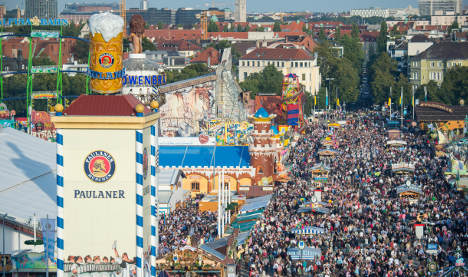A group looking out for the safety of women and girls at the Oktoberefest – the “Sichere Wiesen für Mädchen und Frauen” have cared for 83 women in a little over a week since the world’s biggest folk festival started. Volunteers set up camp at the Oktoberfest each year offering support for female visitors.
“We are concerned because the police had listed 12 cases of sexual assault by this weekend,” Kristina Gottlöber of the group told newspaper the Süddeutsche Zeitung. Two of these cases are being investigated to see if they were rape.
In the first weekend, the tent saw 31 women and girls come in looking for help. In the most cases, these women had drunk too much or become separated from their friends and family.
There have been two cases of domestic violence and two men have also been charged with sexual assault.
One of these cases was on the first Sunday of the festival, when a man followed a tourist and assaulted her when she was passed out on a park bench. Police arrested him, and the woman was cared for initially by the Sichere Wiesen volunteers.
Other people offering their services at the help tent assist visitors in finding their friends, or helping them to get home.
Most commonly it is young women and tourists who come looking for help. “They don’t know how things work and think that nothing could happen to them,” Gottlöber told the Süddeutsche Zeitung. “Of course, women should have fun at the Oktoberfest but remember that it can be dangerous.”
The Local/jcw
Follow us on Twitter @thelocalgermany
Like The Local Germany on Facebook



 Please whitelist us to continue reading.
Please whitelist us to continue reading.
Member comments